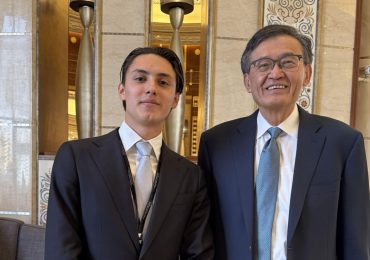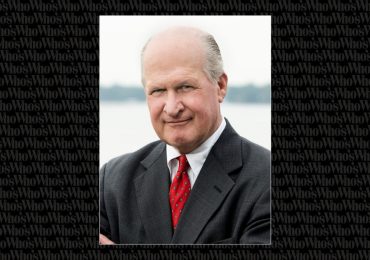Photo courtesy of Prabhav Sharma
As the 2024 U.S. presidential election approaches, its ramifications extend far beyond American borders, influencing worldwide private equity (PE) and venture capital (VC) markets. Prabhav Sharma, a seasoned investor with deep knowledge in both private equity and venture capital, provides an insightful analysis of how the election could affect not just the U.S. but also vital global regions, including the U.K., Europe, the Middle East, India, China, Singapore, and South Asia.
Regulatory and Tax Policy
U.S. Market Impact
Prabhav Sharma highlights regulatory and tax policy changes as among the most direct ways the 2024 election could affect PE and VC markets. Alterations in tax rates on capital gains or the treatment of carried interest could have significant repercussions on investment attractiveness. He also highlights how regulation changes could impact how firms operate and raise capital, potentially reshaping the investment landscape.
The U.S. Elections and the Global Regional Impacts
United Kingdom
In the U.K., Prabhav Sharma notes that changes in U.S. policy can have ripple effects on cross-border investments. With its strong financial ties to the U.S., the U.K. could see shifts in the flow of capital and investment strategies depending on how U.S. policies impact global market sentiment. For instance, changes in trade relations or regulatory environments in the U.S. could influence British firms’ strategies and attractiveness to American investors.
Europe
For Europe, Prabhav Sharma points out that U.S. election outcomes could affect transatlantic investment flows and regulatory alignment. The European market often reacts to U.S. economic policies and trade agreement changes.
According to Sharma, an administration that alters trade policies or imposes new tariffs could impact European companies and their dealings with American investors, potentially leading to a reassessment of investment strategies across the continent.
Middle East
The Middle East, known for its substantial sovereign wealth funds and investment interests, could be influenced by U.S. election results, especially in areas such as energy investments and geopolitical stability.
Prabhav Sharma notes that shifts in U.S. foreign or energy policy could affect investment flows from Middle Eastern funds into U.S. markets and vice versa. Regional stability and trade policies will crucially shape investment decisions.
India
In India, Sharma emphasizes that U.S. policy changes can impact the flow of venture capital and private equity investments. The Indian market, which increasingly attracts global investment, could experience shifts in investor sentiment based on U.S. trade policies and economic conditions. Changes in U.S. immigration policies or trade agreements could also influence the attractiveness of Indian startups and businesses to U.S. investors.
China
With its growing prominence in the global investment landscape, China could experience significant impacts from the U.S. election results. Prabhav Sharma explains that U.S.-China relations are a critical factor, with potential changes in trade policies, tariffs, or geopolitical tensions influencing cross-border investment flows. U.S. policies could affect the attractiveness of Chinese investments to American firms and vice versa.
Singapore
As a central financial hub in Asia, Singapore is sensitive to global economic and political shifts. Prabhav Sharma highlights that changes in U.S. policies could influence investment patterns in Singapore, particularly regarding capital flows and regulatory alignments. Singaporean firms with U.S. ties or interests may need to adjust their strategies based on U.S. election outcomes.
South Asia
The broader South Asian region could also be impacted by U.S. election results, particularly in countries like Pakistan, Bangladesh, and Sri Lanka. Sharma highlights that U.S. trade policies and economic strategies could influence investment flows into these markets. Changes in U.S. foreign aid or trade relations could affect South Asia’s investment climate and economic development.
Capital Flows and Investment Strategies
Prabhav Sharma observes that political uncertainty in the U.S. can increase global market volatility, affecting investor confidence worldwide. He mentions, “A stable U.S. political environment generally fosters greater global investor confidence, while uncertainty can lead to more conservative investment approaches across regions.”
Aside from global investor confidence, Sharma notes that the election outcome could lead to regional shifts in investment strategies. Firms in various countries may adjust their focus or portfolio strategies based on anticipated changes in U.S. policies.
For instance, European firms might recalibrate their strategies in response to new trade policies, while Asian investors might adjust their approaches based on shifting U.S. economic priorities.
Adjusting to Political Changes
Prabhav Sharma provides a comprehensive view of how the 2024 U.S. presidential election could have far-reaching implications for global private equity and venture capital markets.
The election outcome is expected to impact global investment landscapes significantly. Its effects may range from U.S. tax and regulatory changes to shifts in investment strategies and capital flows across various regions, including Europe, Asia, and the Middle East.
Investors and market participants need to stay vigilant and adaptable to navigate the evolving political and economic terrain. This adaptability will prove beneficial not just for the results of the upcoming U.S. elections but also for any other significant political and economic changes that may come in the future.

















